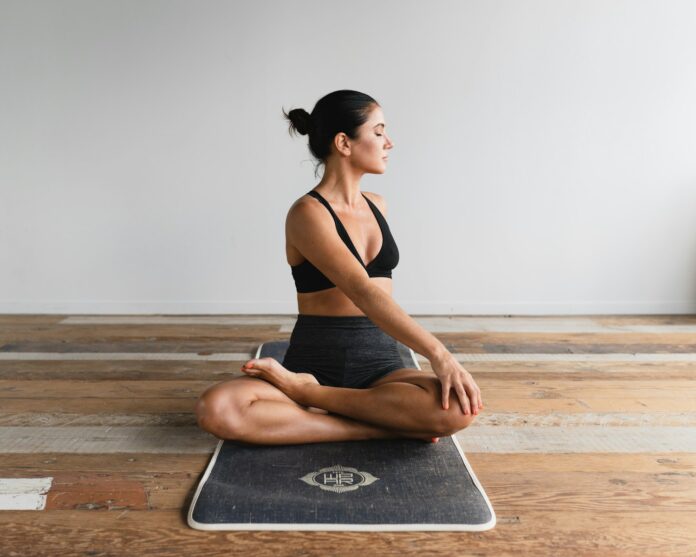When it comes to physical fitness, meditation might not be the first thing that comes to mind. However, integrating meditation into your fitness routine can profoundly enhance both your mental and physical performance. By reducing stress, improving focus, and promoting recovery, meditation plays a crucial role in achieving holistic fitness and well-being. This guide explores the science behind meditation and how it complements physical fitness.
1. Meditation and Stress Reduction in Fitness
Stress can significantly hinder physical performance and recovery. Meditation is a proven tool for managing stress by calming the mind and regulating the body’s response to external pressures.
How It Helps:
- Reduces cortisol, the body’s primary stress hormone, which can impede muscle growth and recovery.
- Lowers heart rate and blood pressure, promoting relaxation and faster recovery after workouts.
Actionable Steps:
- Practice mindfulness meditation for 10–15 minutes daily to manage stress and improve overall fitness.
- Use guided meditation apps or focus on deep breathing to calm the mind after intense workouts.
2. Enhancing Focus and Performance
Athletes and fitness enthusiasts require sharp focus to execute movements correctly, maintain form, and push through challenges. Meditation trains the brain to stay present, improving concentration during workouts or competitions.
Benefits for Focus:
- Increases awareness of your body’s movements, helping you fine-tune technique and prevent injuries.
- Helps you stay committed to long-term fitness goals by reducing distractions and mental fatigue.
“Meditation trains the mind just as exercise trains the body, creating a synergistic effect for peak performance.”
3. Meditation for Improved Recovery
Recovery is a vital part of physical fitness, and meditation accelerates the process by activating the body’s relaxation response.
How It Aids Recovery:
- Boosts parasympathetic nervous system activity, which is responsible for rest and digestion.
- Improves sleep quality, ensuring your body repairs and rebuilds efficiently.
- Reduces muscle tension and promotes better circulation, aiding in post-workout recovery.
Techniques to Try:
- Practice body scan meditation to release tension and increase relaxation after exercise.
- Combine meditation with stretching or yoga for an enhanced recovery routine.
4. Enhancing Endurance and Pain Tolerance
Endurance athletes often face mental and physical barriers, such as fatigue and discomfort. Meditation helps build resilience by teaching you to focus on the present and manage pain perception.
Benefits for Endurance:
- Reduces perceived exertion during high-intensity workouts, allowing you to push harder.
- Trains your mind to remain calm under physical stress, improving stamina.
Practice Suggestions:
- Use visualization techniques during meditation to imagine completing challenging workouts or races.
- Incorporate mindfulness breathing during long runs or cardio sessions to maintain a steady rhythm.
5. Meditation and Weight Management
Meditation supports weight management by promoting mindful eating and reducing emotional eating triggers. A focused mind is less likely to succumb to cravings or stress-related overeating.
How It Helps:
- Encourages awareness of hunger and fullness cues, preventing overeating.
- Reduces stress-related cortisol levels, which can contribute to weight gain.
Tips:
- Practice mindful eating meditation before meals to enhance awareness of your food choices.
- Pair meditation with a balanced diet and regular exercise for optimal results.
6. Building a Consistent Fitness and Meditation Routine
Consistency is key in both fitness and meditation. Creating a routine that integrates both practices can amplify their benefits and improve your overall health.
Sample Routine:
- Morning: Start with 5–10 minutes of mindfulness meditation to set the tone for the day.
- Workout Time: Incorporate breathing exercises or visualization before and after exercise.
- Evening: Practice body scan meditation or guided relaxation to enhance recovery and promote sleep.
7. Meditation and Flexibility
Meditation enhances flexibility by reducing mental and physical tension, allowing your muscles to relax and stretch more effectively. When combined with yoga or static stretching, meditation improves range of motion and mobility.
Techniques to Use:
- Meditate in a seated or reclining position while focusing on deep, controlled breathing.
- Combine meditation with yoga to improve mental focus and physical flexibility simultaneously.
8. Supplements for a Holistic Fitness Approach
Supporting your meditation and fitness practice with proper nutrition enhances overall results. High-quality supplements ensure your body gets the nutrients it needs to perform and recover.
Recommended Products:
- Protein Powders: Support muscle recovery and repair.
- Omega-3 Fatty Acids: Promote brain health and reduce inflammation.
- Magnesium: Aids relaxation and supports muscle recovery.
Explore Myprotein products to optimize your fitness and meditation journey with premium supplements.
9. Meditation Techniques to Try
Mindfulness Meditation:
- Focus on your breath and let go of intrusive thoughts.
- Ideal for reducing stress and enhancing focus.
Guided Meditation:
- Use apps or audio guides to explore themes like relaxation, motivation, or endurance.
- Perfect for beginners or those seeking structured sessions.
Body Scan Meditation:
- Bring awareness to different parts of your body, releasing tension as you go.
- Great for recovery and relaxation after workouts.
Visualization:
- Picture yourself achieving fitness milestones or performing at your peak.
- Boosts motivation and mental resilience.
10. Long-Term Benefits of Meditation in Fitness
Regular meditation enhances not only your fitness journey but also your overall quality of life.
Long-Term Gains:
- Improved mental clarity and emotional resilience.
- Enhanced physical performance and recovery.
- A stronger mind-body connection, leading to better overall health.
Conclusion
Meditation is a powerful, often overlooked tool for enhancing physical fitness. By improving focus, reducing stress, and accelerating recovery, it helps you perform better and feel better. Whether you’re just starting your fitness journey or looking to take your training to the next level, integrating meditation into your routine can transform your results.
Pair your fitness and meditation practices with high-quality supplements from Myprotein to fuel your body and mind effectively. For more tips on holistic health, visit Lifestyle Home and start building a balanced, fulfilling lifestyle today!

